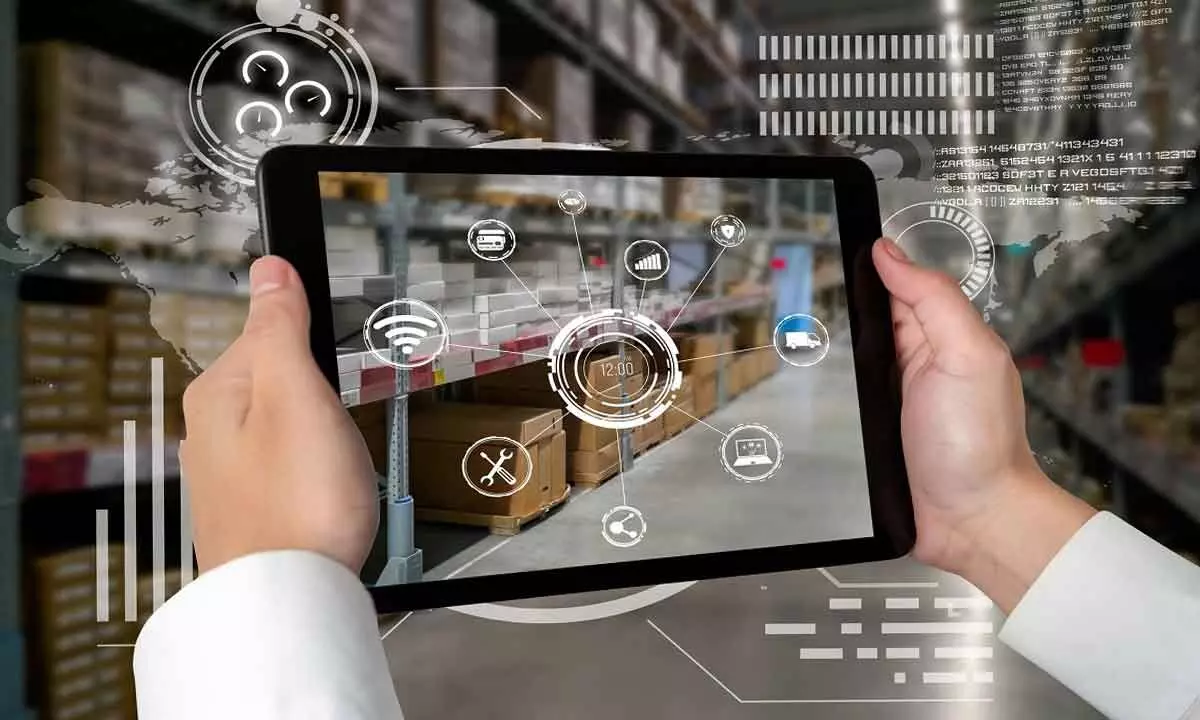How micro fulfilment centres are revolutionising last-mile delivery
MFCs are compact, urban fulfillment centers that use automation to streamline order processing
image for illustrative purpose

Picture this: You've just made an online purchase and eagerly waiting for your package to arrive. Days pass, then weeks, and you start questioning if your order will ever reach your doorstep. Frustrating, isn't it? Well, this is where the concept of micro fulfilment centres (MFCs) steps in to revolutionize last-mile delivery!
In today's fast-paced world, where convenience is key, MFCs are transforming the way goods are stored and delivered. These compact yet highly efficient facilities are paving the way for faster delivery times, reduced costs, and improved customer satisfaction. So, let's dive into this groundbreaking innovation as we explore how MFCs can revolutionize last-mile delivery with automation and robotics!
What is a Micro Fulfilment Centre?
Imagine a miniature version of a traditional warehouse, buzzing with activity and precision. That's essentially what a micro fulfilment centre (MFC) is - a compact facility strategically designed to optimize the fulfilment process from start to finish.
Unlike large-scale warehouses that are situated on the outskirts of cities, MFCs are typically located in urban areas, closer to where customers reside. This proximity ensures quicker delivery times and reduces transportation costs. With limited square footage, every inch of space is maximized for efficiency.
Within these mini powerhouses, advanced automation technologies take centre stage. From robotic picking systems to automated conveyor belts, MFCs utilize cutting-edge machinery to streamline operations and speed up order processing. These technologies work seamlessly together like a well-oiled machine, ensuring products move swiftly from storage shelves to packaging stations.
But it doesn't stop there! MFCs also leverage sophisticated software algorithms that optimize inventory management and route planning. By analysing data in real-time, they can predict demand patterns and adjust their operation accordingly.
In essence, MFCs bring the warehouse closer to the customer's doorstep while incorporating state-of-the-art technology at every step of the process. The result? A highly efficient system that promises faster deliveries and delighted customers!
Micro Fulfilment Centre Vs Traditional Warehousing
When it comes to last-mile delivery, efficiency is the name of the game. Traditional warehousing methods have served us well for many years, but as consumer demand increases and expectations rise, new solutions are needed. Enter the micro fulfilment centre (MFC), a compact and innovative approach that is transforming last-mile delivery.
Unlike traditional warehouses which can be hundreds of thousands of square feet in size, MFCs are typically around 10,000 square feet or less. This smaller footprint allows them to be strategically placed in city centres or within existing retail stores. With items stored closer to where they are needed, orders can be picked and packed quickly, ensuring same-day or even same-hour delivery options.
MFCs enable better inventory management and visibility. By utilizing automation technologies such as robotics and AI-powered systems, these centres can optimize storage space and track inventory accurately in real-time.
By decentralizing distribution through multiple MFCs instead of relying on one large warehouse facility far from populated areas, retailers can significantly reduce their carbon footprint by minimizing long-haul transportation distances.
Micro fulfilment centres offer a more agile and efficient solution for last-mile delivery compared to traditional warehousing methods. Their smaller size enables them to be located closer to consumers while leveraging automation technologies enhances speed and accuracy throughout the fulfilment process. As e-commerce continues its rapid growth trajectory globally, automated MFCs will play a vital role in meeting customer demands for fast and convenient deliveries to ensure consumer satisfaction.
Impact of MFCs
In today's fast-paced and highly competitive world, businesses are constantly seeking innovative ways to meet the ever-increasing demands of customers. The last-mile delivery has become a critical aspect of the supply chain, as it directly impacts customer satisfaction and loyalty, ensuring repeat orders. This is where micro fulfilment centres (MFCs) come into play, revolutionizing the way goods are stored, picked, and delivered.
By adopting automation and robotic technologies, MFCs offer dynamic fulfilment that streamline operations and improve efficiency. With compact layouts optimized for high-density storage and advanced picking algorithms powered by artificial intelligence (AI), MFCs can process orders at an unprecedented speed.
One of the key advantages of MFCs over traditional warehousing is their proximity to urban areas. This not only enhances customer experience but also helps businesses stay ahead in the competitive market.
Furthermore, automation plays a crucial role in reducing human error while increasing accuracy in order fulfilment processes. The integration of robotics in MFCs allows for precise picking, packing, sorting, and loading operations without compromising on quality control checks. By leveraging technologies like computer vision systems and robotic arms equipped with sensors, MFCs ensure that each order is accurately assembled before being dispatched. Another noteworthy advantage of MFCs is their scalability. Traditional warehouses often require significant space expansions to accommodate growing inventory levels or seasonal fluctuations in demand. In contrast, micro fulfilment centres are designed with scalability in mind – they can easily be expanded or replicated as needed without disrupting ongoing operations.
Micro Fulfilment Centres have transformed last-mile delivery by combining automation technology with strategic location planning. These innovative facilities bring numerous benefits including reduced transit times through improved proximity to customers' locations; enhanced precision through advanced AI-powered picking algorithms; minimized errors through accurate robotic operations; and scalability to meet growing demands. MFCs coupled with automation will become a paradigm-shifting advancement that will enable retailers to grow at unprecedented scale.
(The author is Co-Founder of Addverb)

